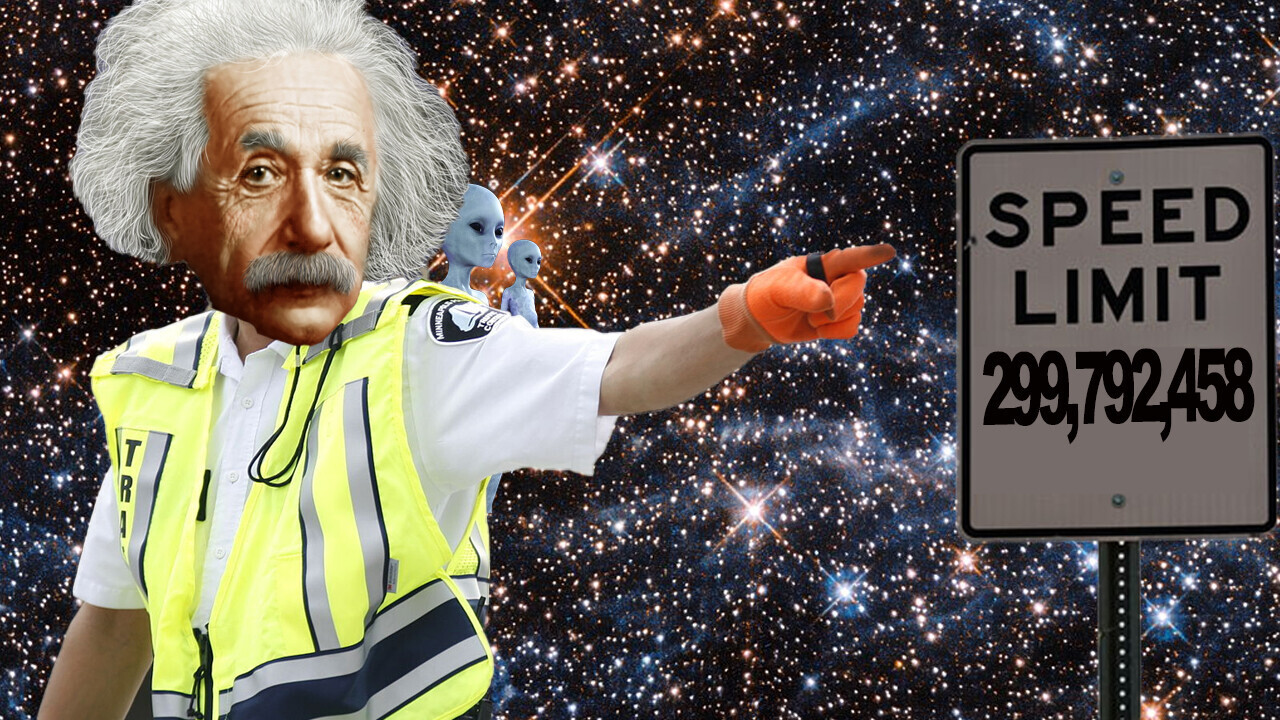
Where are the aliens? Italian physicist Enrico Fermi posited the idea that aliens may not exist simply because, if they did, there should be some evidence for them.
Fermi wasn’t a troll. You can believe in aliens and also recognize that science requires actionable data.
But what if both Fermi’s paradox and the alien enthusiasts are correct? What if we posit a sort of Fermi’s Alien where, like Schrodinger’s Cat, the creature exists in two paradoxical states that are simultaneously true.
Fermi’s Alien, which is something I just made up, tells us that aliens can both exist in the universe and not exist in the universe at the same time.
Let’s start with the basics. If we created a supercomputer with our most advanced algorithms and packed it into our fastest space ship, it would take the vessel about eighty-one billion one hundred eighty-four million years to reach the Milky Way’s next door neighbor.
That’s a long trip to make for some small odds. But what if we simplify things a bit. Let’s pretend that someone’s finally invented a functional warp drive and, just for kicks, let’s say we can build a spaceship capable of traveling at the speed of light in perpetuity.
Exactly how much of this great big universe that’s potentially teeming with intelligent life could we ever hope to explore?
Big Think’s Ethan Siegel recently published a fascinating visual article discussing the speed of light as it relates to our position in the universe. And, according to them, about 94% of everything is out of our reach.
You see, the universe isn’t a giant bubble in which Earth exists as a point on a 3D map. The idea of “location” is a moving target, so to speak.
That’s because the universe is expanding. This makes visiting the vast majority of all galaxies impossible. As Siegel puts it:
As the universe expands, the space between all unbound objects increases over time. Beyond distances of ~14.5 billion light-years, space’s expansion pushes galaxies away faster than light can travel.
This simple statement puts a lot of things into perspective. When ET hunters posit a universe so vast that intelligent life must exist beyond our solar system, they may not be accounting for a paradigm where even the most technologically sophisticated beings in the universe are kept separate from us and each other through sheer force of the laws of physics.
Once a galaxy is too far away for a craft traveling at the speed of light to reach after an infinite amount of time, any species isolated in such a kingdom would be essentially alone in the universe.
So, what does that tell us about any trips to our next door neighbor Andromeda? If Einstein and the laws of physics are correct, nothing can travel faster than the speed of light. And that means that trip would take 2.537 million years at the universe’s speed limit.
Chances are, we won’t be meeting any space aliens unless they’re already in our own galaxy.
Get the TNW newsletter
Get the most important tech news in your inbox each week.




